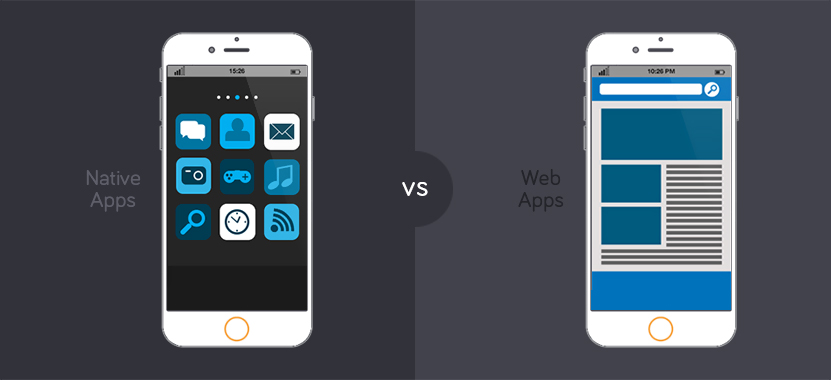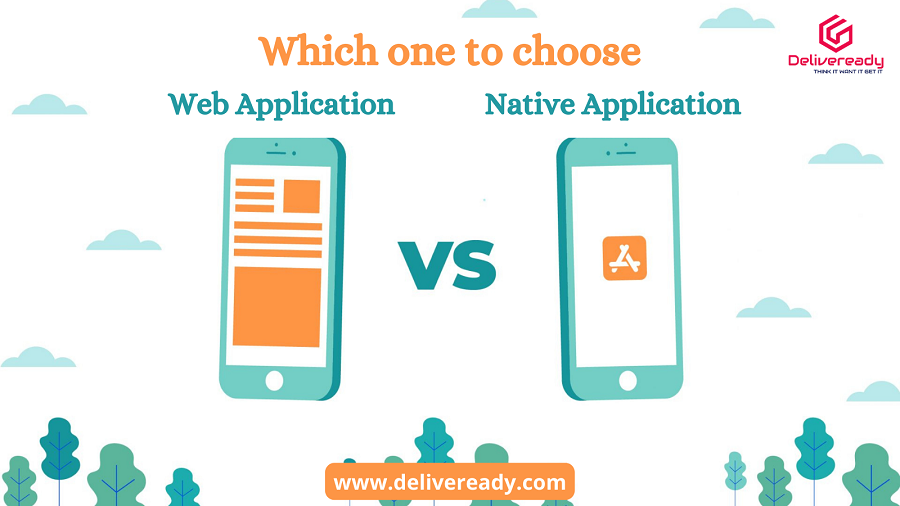A native application can be downloaded and installed directly from a store, such as the App Store, Microsoft Store, or Play Store. Whereas, the web app is a website specially designed for mobile. Now the question comes that which one to choose Native Application or Web Application?
Each operating system has its own programming language for developing mobile applications.
As for the Web app, more than an application, it is a website created especially for mobile devices and accessible only from a mobile browser.
So there is no download or installation to do, it can be accessed from a mobile browser search.
How to choose between native app and web app
Be careful not to confuse them! The web app is a website specially designed for mobile, while a responsive website is a site accessible from both a computer and a mobile device.
The first can only be visited from a mobile browser, while the second is primarily a traditional website, but which also provides good ergonomics on mobile.
What are the differences between native app and web app
The main differences between native app and web apps are not to be looked for on the content side. Each can offer great content that will satisfy users.
The most important differences, therefore, play out elsewhere. Here are the main difference between Native Apps and Web Apps.
- Installation and updates:
A native app is installed from any application store. A quick-access icon is created to launch it with a single click.
The application, for operational or security reasons or for the deployment of new features, may be subject to updates.

The user will be notified and must complete the process. The web app does not require any installation, the user simply accesses it from their mobile browser.
Updates are done automatically on the developer side, without any user intervention. Agencies like Deliveready offers services to create all type of applications.
- The Budget:
A native application should be developed on multiple operating systems, in order to reach as many consumers as possible, whether they use Apple or Android devices.
For example. Badly anticipated, this point can lead to budget overruns, which is why it is recommended to take this into account from the outset of the project.
In addition, to be available on the App Store, it is necessary to pay ($99/year) a subscription with Apple.
The web app, which functions as a website, is, therefore, easier, faster, and therefore generally less expensive to develop than the development of a native application.
- User Experience:
This is especially important because depending on whether it is good or not, the user experience can make your project a success or a failure.
Native apps are generally considered to be faster, smoother, and more intuitive, with a full-screen display.
They also allow the use of smartphone technologies, such as GPS or the camera. Suffice to say that they are the preference of most mobile users.
For retailers, there is no shortage of assets either: the Push function is ideal for communicating with customers and making them want to visit the application to discover products or take advantage of a promotion.
Web apps look like native apps from a visual standpoint, but they don’t display full screen. Items like the address bar, or just the top bar with the time and notifications, remain visible.
In addition, it is essential to optimize the weight of the pages to load, because mobile users are rarely patient with the loads.
Native Apps vs. Web Apps
- The native app must be installed on the device, unlike a web app.
- A web app costs less to develop, but the user experience may be less satisfying.
- Native applications are popular with mobile users than the web app.
This was all about the difference between Native Apps and Web Apps. Now you must have understood that which one to choose Native application or Web application.
However, if you have any concerns regarding Native Apps vs. Web Apps then you may contact Deliveready.



